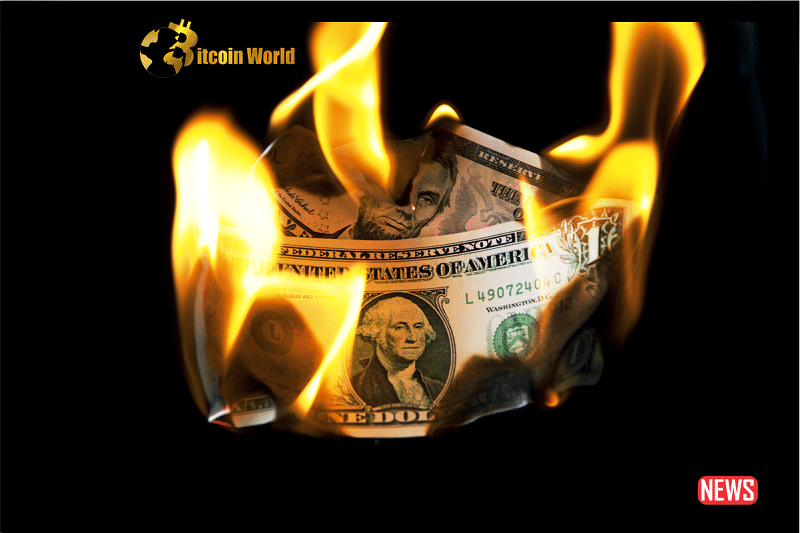Is the reign of the US dollar as the undisputed king of global finance starting to show cracks? Whispers of change are growing louder, and it seems central banks around the world are actively exploring a future where the dollar isn’t the only game in town. Imagine a world where nations trade without always relying on the greenback. Sounds like a significant shift, right? Well, according to Ruchir Sharma, Chairman of Rockefeller International, this isn’t just a hypothetical scenario – it’s a trend that’s already underway.
Why the Dollar Doubt? Sanctions Spark a Rethink
Think about it: when the US imposed sanctions on Russia during the Ukraine conflict, it sent a powerful message. While intended to pressure Russia, it also inadvertently highlighted a vulnerability for other nations. Could they be next? This has prompted a serious rethink in many capitals about over-reliance on a single currency.
Sharma, in a recent interview, pointed out the growing unease. Countries are actively seeking alternatives for international transactions. Consider these developments:
- Saudi Arabia and China: Exploring settling oil trades in currencies other than the dollar. This is a big deal, considering the historical dominance of the petrodollar.
- India and the UAE: Discussing ways to bypass the dollar in their bilateral trade.
These aren’t isolated incidents. They represent a broader desire for economic autonomy and reduced exposure to potential geopolitical fallout linked to dollar dominance.
The Golden Ticket: Why Central Banks are Piling into Gold
So, if not the dollar, then what? The answer, increasingly, seems to be gold. Forget fleeting trends; central banks are buying gold at a rate that Sharma describes as “never seen in history.” Why the sudden gold rush?
| Reason | Benefit |
|---|---|
| Diversification: | Reduces reliance on a single currency, spreading risk. |
| Safe Haven Asset: | Gold historically holds its value during economic uncertainty. |
| Tangible Asset: | Unlike currencies, gold is a physical commodity with intrinsic value. |
Sharma specifically mentions Brazil, India, China, and Turkey as significant gold buyers. Instead of hoarding dollars, they’re bolstering their reserves with this precious metal, driving up its price in recent months.
Is US Complacency Blinding Policymakers?
Here’s where things get interesting. Sharma suggests a potentially dangerous level of complacency within US policymaking circles. The prevailing sentiment seems to be that there’s simply no viable alternative to the dollar. The Chinese Yuan? “Not fit to be held,” some might argue. The Euro? “It has its own problems.”
But is this a realistic assessment? Sharma warns against such a “naive” view, emphasizing the US’s own dependence on the dollar’s global standing. Ignoring the shifting tides could have significant consequences.
What Does This Mean for the Future? Key Takeaways
So, what are the key implications of this global dollar diversification?
- Shifting Power Dynamics: Reduced reliance on the dollar could lead to a more multi-polar financial world.
- Impact on Sanctions: The effectiveness of US sanctions might diminish if countries have alternative transaction methods.
- Gold as a Strategic Asset: Expect gold to play an increasingly important role in central bank reserves.
- Potential Dollar Weakening: While not an immediate collapse, sustained diversification could gradually erode the dollar’s dominance.
The Bottom Line: A World in Transition
The movement away from total dollar dependence is no longer a fringe idea; it’s a tangible trend being driven by major global players. Central banks are voting with their reserves, and gold is emerging as a key beneficiary. While the dollar isn’t going to disappear overnight, the writing seems to be on the wall: the world’s financial landscape is evolving. The US may need to adapt its strategies and acknowledge this changing reality to maintain its economic influence in the years to come. The era of unchallenged dollar supremacy might just be drawing to a close.
Disclaimer: The information provided is not trading advice, Bitcoinworld.co.in holds no liability for any investments made based on the information provided on this page. We strongly recommend independent research and/or consultation with a qualified professional before making any investment decisions.


